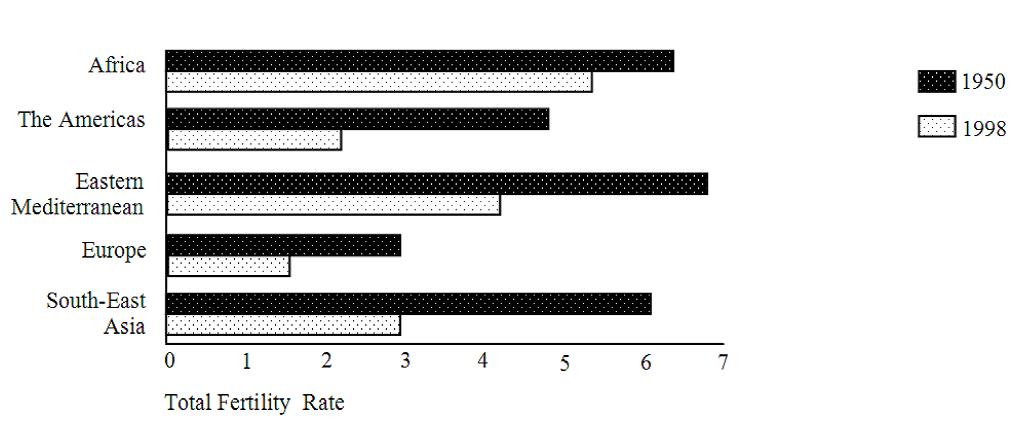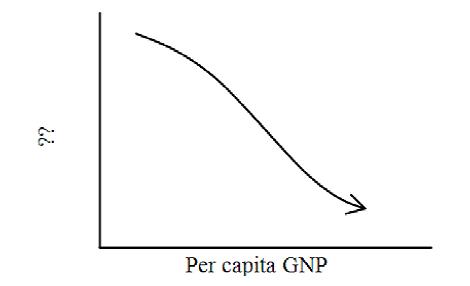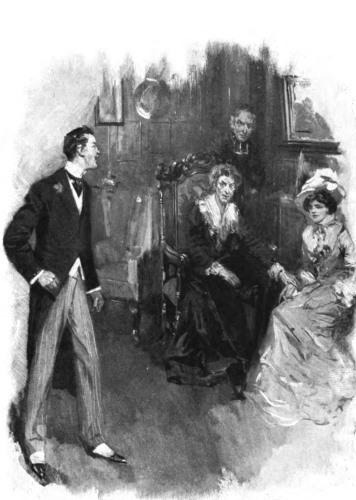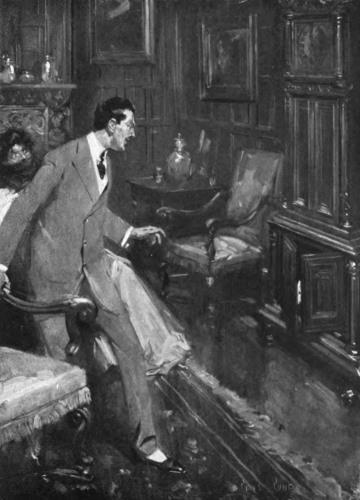
More products digital (pdf, epub, mobi) instant download maybe you interests ...

Environmental Science A Global Concern 13th Edition
Cunningham Solutions Manual
https://testbankfan.com/product/environmental-science-a-globalconcern-13th-edition-cunningham-solutions-manual/

Environmental Science 14th Edition Cunningham Test Bank
https://testbankfan.com/product/environmental-science-14thedition-cunningham-test-bank/

Principles of Environmental Science 8th Edition
Cunningham Test Bank
https://testbankfan.com/product/principles-of-environmentalscience-8th-edition-cunningham-test-bank/

Principles of Environmental Science 1st Edition
Cunningham Test Bank
https://testbankfan.com/product/principles-of-environmentalscience-1st-edition-cunningham-test-bank/

Principles of Environmental Science 8th Edition
Cunningham Solutions Manual
https://testbankfan.com/product/principles-of-environmentalscience-8th-edition-cunningham-solutions-manual/

Principles of Environmental Science Companion Site 6th Edition Cunningham Test Bank
https://testbankfan.com/product/principles-of-environmentalscience-companion-site-6th-edition-cunningham-test-bank/

Environmental Science 13th Edition Miller Test Bank
https://testbankfan.com/product/environmental-science-13thedition-miller-test-bank/

Principles of Environmental Science Inquiry and Applications 7th Edition Cunningham Test Bank
https://testbankfan.com/product/principles-of-environmentalscience-inquiry-and-applications-7th-edition-cunningham-testbank/

Principles of Environmental Science Companion Site 6th Edition Cunningham Solutions Manual
https://testbankfan.com/product/principles-of-environmentalscience-companion-site-6th-edition-cunningham-solutions-manual/
Chapter 07 - Human Populations
Multiple Choice Questions
1. Historically, up until the middle ages, populations were mostly limited by:
A. Low fertility rates
B. Culturally imposed family planning practices
C. Disease, famine and war
D. Religious restrictions on marriage
E. Infanticide
Bloom's: 1. Remember
Section: 07.01
Topic: Populations
2. ____________ are the most widely distributed vertebrate organisms on Earth.
A. Fishes
B. Insects
C. Rodents
D. Birds
E. Humans
Section: 07.01
Topic: Populations
Chapter 07 - Human Populations
3. Historical evidence shows that plagues and diseases:
A. Are highly effective at slowing population growth
B. Affect population growth for at least a century
C. Affect relatively few people in a population
D. Are devastating to human population growth
E. Cause only minor or temporary setbacks in population growth trends
Bloom's: 2. Understand Section: 07.01
Topic: Populations
4. Human population growth most closely resembles:
A. Carrying capacity geometric increase
B. Irruptive growth
C. Malthusian growth
D. S-shaped growth curve
E. J-shaped growth curve
Bloom's: 1. Remember Section: 07.01
Topic: Populations
5. The world human population reached about 1 billion in _________ and passed ____________ in 2011.
A. 1400; 78 billion
B. 1500; 1 trillion
C. 1600; 78 million
D. 1700; 7 million
E. 1800; 7 billion
Bloom's: 1. Remember Section: 07.01
Topic: Populations
Chapter 07 - Human Populations
6. The population theory held by Thomas Malthus was that the human population would:
A. Never reach its environment's carrying capacity
B. Develop a modern utopia
C. Reach its environment's carrying capacity and then maintain equilibrium
D. Maintain equilibrium with its carrying capacity
E. Outstrip its resources, then suffer starvation and misery
Bloom's: 1. Remember
Section: 07.02
Topic: Populations
7. Neo-Malthusians argue that
A. Malthus's eighteenth century theories apply to similar circumstances today
B. We should never return to the conditions observed by Malthus in his day
C. Malthus could be useful today if reinterpreted
D. Malthus was wrong from the start
E. None of these represents the viewpoint of Neo-Malthusians
Bloom's: 2. Understand
Section: 07.02
Topic: Populations
8. Disastrous famines in the past 200 years
A. Prove conclusively that Malthus was right
B. Have mostly resulted from politics and economics rather than from overpopulation
C. Prove conclusively that Malthus was mistaken
D. Have resulted from population overshoots based on overuse of resources
E. Prove conclusively that Marx was mistaken
Bloom's: 1. Remember
Section: 07.02
Topic: Populations
Chapter 07 - Human Populations
9. Malthus argued that ______________ is the ultimate cause of social and environmental problems, and Marx argued that population growth ____________ social and environmental problems.
A. Excess population growth; results from
B. Poverty; results from C. War; results from
D. Excess population growth; is also the ultimate cause of
E. Poverty; is the ultimate cause of
Bloom's: 1. Remember
Section: 07.02
Topic: Populations
10. Technological optimists argue that technological advances have:
A. Led to the increase in human population, but whether we can continue is of great concern
B. Proved Marx wrong in his predictions of famine and disaster
C. Proved Malthus wrong in his predictions of famine and disaster
D. Been developed because there are more people, supporting the view that more people are the "ultimate resource."
E. Been a neutral factor in the issue of population growth
Bloom's: 2. Understand
Section: 07.02
Topic: Populations
11. Malthus and Marx
A. Worked together to form their theories
B. Agreed about the root causes of overpopulation, poverty, and social upheaval
C. Disagreed about the root causes of overpopulation, poverty, and social upheaval
D. Held the same beliefs but worked on different issues
E. Disagreed about the severity of overpopulation, poverty, and social upheaval
Bloom's: 2. Understand
Topic: Populations
Chapter 07 - Human Populations
12. Human ingenuity and intelligence as the "ultimate resource" is the central theme in the argument of
A. Julian Simon
B. John Muir
C. Thomas Malthus
D. Neo-Malthusians
E. Marxism
Bloom's: 1. Remember Section: 07.02
Topic: Populations
13. Demography is the science that describes
A. The earth's carrying capacity
B. Population changes and characteristics
C. Energy resources
D. Food production
E. Environmental factors that affect population sizes
Bloom's: 1. Remember Section: 07.03
Topic: Populations
14. Ninety percent of the world's population growth in the next century is expected to occur in
A. Less-developed countries
B. China
C. Developed countries
D. Moderately developed nations
E. India
Bloom's: 2. Understand Section: 07.03
Topic: Populations
15. The I = PAT formula says that our environmental impacts (I) are the product of
A. The population size times affluence and the amount of time it took for the population to reach its current size
B. The population size times affluence and the technology used to produce goods and services consumed
C. The population size times and the amount of technology used
D. The percentage of affluence times and the percentage of technology produced
E. None of the above is correct
Bloom's: 2. Understand
Section: 07.02
Topic: Populations
16. Why is Russia's population declining?
A. There is a one-child policy similar to the one in China and Thailand
B. There has been a massive education campaign to reduce births
C. The standard of living has decreased leading to lower infant mortality and lower birth rates
D. Russia's population is not declining
E. The standard of living has decreased leading to higher death rates and lower birth rates
Bloom's: 1. Remember
Section: 07.03
Topic: Populations
17. Most of the world's human settlements are clustered
A. In wide arable plains
B. In mountainous regions
C. Along coastlines and rivers
D. Between 30 and 50 degrees north latitude
E. In open valleys
Bloom's: 1. Remember
Section: 07.03
Topic: Populations
Chapter 07 - Human Populations
18. Crude birth rates are measured in terms of the number of children born
A. In a single year
B. Per family
C. Per family per year
D. Per 1,000 people each year
E. Per 1,000 people in the general population
Bloom's: 1. Remember
Section: 07.03
Topic: Populations
19. The zero population growth rate is slightly over two children per couple because
A. We always need slightly more young people
B. The older generation is dying
C. Some children die and some couples do not have children
D. That is as low as birth rates can reasonably be expected to get
E. The zero population growth rate is not slightly over two children per couple
Bloom's: 1. Remember
Section: 07.03
Topic: Populations

Chapter 07 - Human Populations
20. According to the graph, which region had the highest total fertility rate in 1998?
A. Africa
B. The Americas
C. Eastern Mediterranean
D. Europe
E. South-East Asia
Bloom's: 3. Apply Section: 07.03
Topic: Populations
21. According to the graph, which region has had the highest total fertility rate in 1950?
A. Africa
B. The Americas
C. Eastern Mediterranean
D. Europe
E. South-East Asia
Bloom's: 3. Apply Section: 07.03
Topic: Populations
22. According to the graph, which region has the greatest fertility reduction?
A. Africa
B. The Americas
C. Eastern Mediterranean
D. Europe
E. South-East Asia
Bloom's: 3. Apply Section: 07.03
Topic: Populations
Chapter 07 - Human Populations
23. The total fertility rate is the number of children born
A. To the average woman per year
B. To the average woman during her lifetime
C. In the world during a single year
D. In a population during a single year
E. In a population during an entire generation
Bloom's: 1. Remember Section: 07.03
Topic: Populations
24. There is some evidence that population growth today is ____________ rather than ______________.
A. Slowing slightly; continuing to accelerate
B. Continuing to accelerate; slowing slightly
C. Increasing; leveling off
D. Leveling off; decreasing
E. Leveling off; slowing slightly
Bloom's: 2. Understand Section: 07.03
Topic: Populations
25. Demographers usually measure mortality in terms of
A. Deaths per 1,000 persons per year
B. Deaths per person per year
C. The number of children who die per year
D. The total number of deaths per generation
E. Total deaths in a population per year
Bloom's: 2. Understand Section: 07.03
Topic: Populations
Chapter 07 - Human Populations
26. Which of the following factors does not usually affect the crude death rates of a population?
A. Health care
B. Sanitation
C. Age structure of the population
D. Nutrition
E. All of these affect crude death rates
Bloom's: 2. Understand Section: 07.03
Topic: Populations
27. The main cause of world population growth in the past 300 years has been
A. Increasing fecundity
B. Rising fertility
C. Higher birthrates in developing countries
D. Increasing immigration
E.
Falling mortality due to longer life expectancy.
Bloom's: 2. Understand Section: 07.03
Topic: Populations
28. The difference between "total growth rate" and "natural increase" is that total growth rates
A. Include only the number of births and deaths
B. Include immigration and emigration as well as births and deaths
C. Include only immigration and emigration
D. Include infant mortality as well as adult deaths
E. Are not expressed as percentages
Bloom's: 1. Remember Section: 07.04
Topic: Populations
Chapter 07 - Human Populations
29. A population growing at one percent per year should double in about ___ years.
A. 30
B. 70
C. 10
D. 2
E. 0.2
Bloom's: 3. Apply Section: 07.03
Topic: Populations
30. The doubling time for a population with an annual percentage growth rate of 7.0% is
A. 1 year
B. 5 years
C. 10 years
D. 50 years
E. 100 years
Bloom's: 3. Apply
Section: 07.03
Topic: Populations
31. The average age that a newborn can expect to attain in a given society is referred to as
A. Life expectancy
B. Infant mortality
C. Life span
D. Survivorship
E. Life age
Bloom's: 1. Remember Section: 07.03
Topic: Populations
Chapter 07 - Human Populations
32. Which of the following is NOT a factor contributing to decreased life expectancy?
A. Disease
B. Improved sanitation
C. Poverty
D. Famine
E. Warfare
Bloom's: 2. Understand
Section: 07.03
Topic: Populations
33. The best title for the vertical axis on the graph is

A. Life expectancy
B. Average dietary protein intake per day
C. Female literacy
D. Infant mortality
E. Rate of infectious diseases
Bloom's: 3. Apply
Section: 07.04
Topic: Populations

© 2015 McGraw-Hill Education. All rights reserved. No reproduction or distribution without the prior written consent of McGraw-Hill Education.
Chapter 07 - Human Populations
34. The histogram on the left represents a population whose birth rates
A. Have not changed for many years
B. Have recently decreased
C. Are gradually increasing
D. Are sharply increasing
E. None of these. Birth rates cannot be determined by the age class histogram
Bloom's: 3. Apply
Section: 07.03
Topic: Populations
35. The population represented by the age class histogram on the right will
A. Have a large population of old people soon
B. Not grow much in the coming years
C. Soon begin to decline
D. Grow substantially in the future
E. Grow slowly in the future
Bloom's: 3. Apply
Section: 07.03
36. The age-class histogram on the right could represent the population of
A. The United States
B. Western Europe
C. Uganda
D. Japan
E. Sweden
Bloom's: 3. Apply
Section: 07.03
Topic: Populations
Chapter 07 - Human Populations
37. The age-class histogram on the left could represent the population of
A. China
B. Mexico
C. Uganda
D. India
E. Sweden
Bloom's: 3. Apply Section: 07.03
Topic: Populations
38. A pyramid-shaped age structure histogram is characteristic of a(n) _________ population.
A. Stable
B. Expanding
C. Declining
D. Unpredictable
E. Diminishing
Bloom's: 3. Apply
Section: 07.03
Topic: Populations
39. A dependency ratio is a comparison between the numbers of
A. Working and nonworking people
B. Parents and children
C. Old people and young people
D. Young infants and older adults
E. Middle aged people and infants
Bloom's: 1. Remember Section: 07.03
Topic: Populations
Chapter 07 - Human Populations
40. You were in a discussion with a classmate who complained that immigrants were taking away jobs and abusing social services. In response, another classmate who is a proponent of the open door policy explained that immigrants can actually be a bonus to a country. Someone supporting an open door policy would NOT use which of the following statements?
A. Immigrants are usually of a different racial or ethnic background and add cultural diversity
B. Immigrants usually perform dangerous work that citizens are unwilling to do
C. Immigrants usually perform work at a pay scale that citizens are unwilling to accept
D. Immigrants are usually welcomed by other immigrants or descendants of immigrants
E. All of these would probably be used by someone supporting an open door policy
Bloom's: 2. Understand
Section: 07.03
Topic: Populations
41. Pronatalist pressures are influences that lead people to
A. Increase fecundity
B. Have more children
C. Have fewer children
D. Prevent infant mortality
E. Wait until later in life to have children
Bloom's: 2. Understand
Section: 07.03
Topic: Populations
42. Which of the following is considered a TRUE pronatalist pressure?
A. Legitimate needs for support in old age
B. The need for hands to help in farm work and to watch younger siblings
C. Macho pride in men who have many children
D. Woman's status determined by the number of children she has
E. All of these are correct
Bloom's: 2. Understand
Section: 07.03
Topic: Populations
Another random document with no related content on Scribd:
with a grip of steel, that it would have been useless and perhaps cruel to resist.
Satisfied now that her newly found friend, as well as Monsieur le Curé, were prepared to remain by her and to listen to what she had to say, the sick woman turned with a look of violent wrath towards the window embrasure.
“I was just telling that fine nephew of mine that he is counting his chickens before they are hatched. I am not yet dead, as Monsieur my nephew can see; and I have made a will—aye, and placed it where his thievish fingers can never reach it.”
The young man, who up to now had been gazing stolidly out of the window, now suddenly turned on his heel, confronting the old woman, with a look of hate gleaming in his eyes.
“We can fight the will,” here interposed Madame la Marquise, icily.
“On what grounds?” queried the other.
“That you were paralysed and imbecile when you made it,” replied the Marquise, dryly.
Monsieur le Curé, who up to now had been fidgeting nervously with his hat, now raised his hands and eyes up to the ceiling to emphasise the horror which he felt at this callous suggestion. Lady Molly no longer desired to go; the half-paralysed grip on her wrist had relaxed, but she sat there quietly, interested with every fibre of her quick intelligence in the moving drama which was being unfolded before her.
There was a pause now, a silence broken only by the monotonous ticking of a monumental, curious-looking clock which stood in an angle of the room. Miss de Genneville had made no reply to her sister’s cruel taunt, but a look, furtive, maniacal, almost dangerous, now crept into her eyes.

“Confronting the old woman, with a look of hate gleaming in his eyes”
Then she addressed the Curé.
“I pray you pen, ink and paper—here, on this table,” she requested. Then as he complied with alacrity, she once more turned to her nephew, and pointing to the writing materials:
“Sit down and write, Amédé,” she commanded.
“Write what?” he queried.
“A confession, my nephew,” said the old woman, with a shrill laugh. “A confession of those little peccadilloes of yours, which, unless I come to your rescue now, will land you for seven years in a penal settlement, if I mistake not. Eh, my fine nephew?”
“A confession?” retorted Amédé de Terhoven savagely. “Do you take me for a fool?”
“No, my nephew, I take you for a wise man—who understands that his dear aunt will not buy those interesting forgeries, perpetrated by Monsieur le Marquis Amédé de Terhoven, and offered to her by Rubinstein the money-lender, unless that confession is written and signed by you. Write Amédé, write that confession, my dear nephew, if you do not wish to see yourself in the dock on a charge of forging your aunt’s name to a bill for one hundred thousand francs.”
Amédé muttered a curse between his teeth. Obviously the old woman’s shaft had struck home. He knew himself to be in a hopeless plight. It appears that a money-lender had threatened to send the forged bills to Monsieur le Procureur de la République unless they were paid within twenty-four hours, and no one could pay them but Miss de Genneville, who had refused to do it except at the price of this humiliating confession.
A look of intelligence passed between mother and son. Intercepted by Lady Molly and interpreted by her, it seemed to suggest the idea of humouring the old aunt, for the moment, until the forgeries were safely out of the money-lender’s hands, then of mollifying her later on, when perhaps she would have forgotten, or sunk deeper into helplessness and imbecility.
As if in answer to his mother’s look the young man now said curtly:
“I must know what use you mean to make of the confession if I do write it.”
“That will depend on yourself,” replied Mademoiselle, dryly. “You may be sure that I will not willingly send my own nephew to penal servitude.”
For another moment the young man hesitated, then he sat down, sullen and wrathful, and said:
“I’ll write—you may dictate——”
The old woman laughed a short, dry, sarcastic laugh. Then, at her dictation, Amédé wrote:
“I, Amédé, Marquis de Terhoven, hereby make confession to having forged Mademoiselle Angela de Genneville’s name
to the annexed bills, thereby obtaining the sum of one hundred thousand francs from Abraham Rubinstein, of Brest.”
“Now, Monsieur le Curé, will you kindly witness le Marquis’ signature?” said the irascible old lady when Amédé had finished writing; “and you, too, my dear?” she added, turning to Lady Molly.
My dear lady hesitated for a moment. Naturally she did not desire to be thus mixed up in this family feud, but a strange impulse had drawn her sympathy to this eccentric old lady, who, in the midst of her semi-regal splendour seemed so forlorn, between her nephew, who was a criminal and a blackguard, and her sister, who was but little less contemptible.
Obeying this impulse, and also a look of entreaty from the Curé, she affixed her own signature as witness to the document, and this despite the fact that both the Marquise and her son threw her a look of hate which might have made a weaker spirit tremble with foreboding.
Not so Lady Molly. Those very same threatening looks served but to decide her. Then, at Mademoiselle’s command, she folded up the document, slipped it into an envelope, sealed it, and finally addressed it to M. le Procureur de la République, resident at Caen.
Amédé watched all these proceedings with eyes that were burning with impotent wrath.
“This letter,” now resumed the old lady, more calmly, “will be sent under cover to my lawyer, Maître Vendôme, of Paris, who drew up my will, with orders only to post it in case of certain eventualities, which I will explain later on. In the meanwhile, my dear nephew, you may apprise your friend, Abraham Rubinstein, that I will buy back those interesting forgeries of yours the day on which I hear from Maître Vendôme that he has safely received my letter with this enclosure.”
“This is infamous——” here broke in the Marquise, rising in full wrath, unable to control herself any longer. “I’ll have you put under restraint as a dangerous lunatic. I——”
“Then, of course, I could not buy back the bills from Rubinstein,” rejoined Mademoiselle, calmly.
Then, as the Marquise subsided—cowed, terrified, realising the hopelessness of her son’s position—the old lady turned placidly to my dear lady, whilst her trembling fingers once more clutched the slender hand of her newly found English friend.
“I have asked you, my dear, and Monsieur le Curé, to come to me to-day,” she said, “because I wish you both to be of assistance to me in the carrying out of my dying wishes. You must promise me most solemnly, both of you, that when I am dead you will carry out these wishes to the letter. Promise!” she added with passionate earnestness.
The promise was duly given by Lady Molly and the old Curé, then Mademoiselle resumed more calmly:
“And now I want you to look at that clock,” she said abruptly, with seeming irrelevance. “It is an old heirloom which belonged to the former owners of Porhoët, and which I bought along with the house. You will notice that it is one of the most remarkable pieces of mechanism which brain of man has ever devised, for it has this great peculiarity, that it goes for three hundred and sixty-six days consecutively, keeping most perfect time. When the works have all but run down, the weights—which are enormous—release a certain spring, and the great doors of the case open of themselves, thus allowing the clock to be wound up. After that is done, and the doors pushed to again, no one can open them until another three hundred and sixty-six days have gone by—that is to say, not without breaking the case to pieces.”
Lady Molly examined the curious old clock with great attention. Vaguely she guessed already what the drift of the old lady’s curious explanations would be.
“Two days ago,” continued Mademoiselle, “the clock was open, and Monsieur le Curé wound it up, but before I pushed the doors to again I slipped certain papers into the case—you remember, Monsieur?”
“Yes, Mademoiselle, I remember,” responded the old man.
“Those papers were my last will and testament, bequeathing all I possess to the parish of Porhoët,” said Miss de Genneville, dryly, “and now the doors of the massive case are closed. No one can get
at my will for another three hundred and sixty-four days—no one,” she added with a shrill laugh, “not even my nephew, Amédé de Terhoven.”
A silence ensued, only broken by the rustle of Madame la Marquise’s silk dress as she shrugged her shoulders and gave a short, sarcastic chuckle.
“My dear,” resumed Mademoiselle, looking straight into Lady Molly’s eager, glowing face, “you must promise me that, three hundred and sixty-four days hence, that is to say on the 20th September next year, you and Monsieur le Curé—or one of you if the other be incapacitated—will be present in this room at this hour when the door of the clock will open. You will then wind up the family heirloom, take out the papers which you will find buried beneath the weights, and hand them over to Maître Vendôme for probate at the earliest opportunity. Monseigneur the Bishop of Caen, the Mayor of this Commune, and the Souspréfet of this Department have all been informed of the contents of my will, and also that it is practically in the keeping of le Curé de Porhoët, who, no doubt, realises what the serious consequences to himself would be if he failed to produce the will at the necessary time.”
The poor Curé gasped with terror.
“But—but—but——” he stammered meekly, “I may be forcibly prevented from entering the house—I might be ill or——”
He shuddered with an unavowable fear, then added more calmly:
“I might be unjustly accused then of stealing the will—of defrauding the poor of Porhoët in favour of—Mademoiselle’s direct heirs.”
“Have no fear, my good friend,” said Mademoiselle, dryly; “though I have one foot in the grave I am not quite so imbecile as my dear sister and nephew here would suggest, and I have provided for every eventuality. If you are ill or otherwise prevented by outside causes from being present here on the day and hour named, this charming English lady will be able to replace you. But if either of you is forcibly prevented from entering this house, or if, having entered this room, the slightest violence or even pressure is put upon you, or if you should find the clock broken, damaged and—stripped of its
contents, all you need do is to apprise Maître Vendôme of the fact. He will know how to act.”
“What would he do?”
“Send a certain confession we all know of to Monsieur le Procureur de la République,” replied the old lady, fixing the young Marquis Amédé with her irascible eye. “That same confession,” she continued lightly, “Maître Vendôme is instructed to destroy if you, Monsieur, and my English friend here, and the clock, are all undamaged on the eventful day.”
There was silence in the great, dark room for awhile, broken only by the sarcastic chuckle of the enfeebled invalid, tired out after this harrowing scene, wherein she had pitted her half-maniacal ingenuity against the greed and rapacity of a conscienceless roué.
That she had hemmed her nephew and sister in on every side could not be denied. Lady Molly herself felt somewhat awed at this weird revenge conceived by the outraged old lady against her grasping relatives.
She was far too interested in the whole drama to give up her own part in it, and, as she subsequently explained to me, she felt it her duty to remain the partner and co-worker of the poor Curé in this dangerous task of securing to the poor of Porhoët the fortune which otherwise would be squandered away on gaming tables and racecourses.
For this, and many reasons too complicated to analyse, she decided to accept her share in the trust imposed upon her by her newly-found friend.
Neither the Marquise nor her son took any notice of Lady Molly as she presently took leave of Mademoiselle de Genneville, who, at the last, made her take a solemn oath that she would stand by the Curé and fulfil the wishes of a dying and much-wronged woman.
Much perturbed, Monsieur le Curé went away. Lady Molly went several times after that to the château of Porhoët to see the invalid, who had taken a violent fancy to her. In October we had, perforce, to return to England and to work, and the following spring we had news from the Curé that Mademoiselle de Genneville was dead.
LADY MOLLY had certainly been working too hard, and was in a feeble state of health when we reached Porhoët the following 19th of September, less than twenty-four hours before the eventful moment when the old clock would reveal the will and testament of Mademoiselle de Genneville.
We walked straight from the station to the presbytery, anxious to see the Curé and to make all arrangements for to-morrow’s business. To our terrible sorrow and distress, we were informed by the housekeeper that the Curé was very seriously ill at the hospital at Brest, whither he had been removed by the doctor’s orders.
This was the first inkling I had that things would not go as smoothly as I had anticipated. Miss de Genneville’s dispositions with regard to the sensational disclosure of her will had, to my mind, been so ably taken that it had never struck me until now that the Marquise de Terhoven and her precious son would make a desperate fight before they gave up all thoughts of the coveted fortune.
I imagined the Marquis hemmed in on every side; any violence offered against the Curé or Lady Molly when they entered the château in order to accomplish the task allotted to them being visited by the sending of the confession to Monsieur le Procureur de la République, when prosecution for forgery would immediately follow. Damage to the clock itself would be punished in the same way.
But I had never thought of sudden illnesses, of—heaven help us! —poison or unaccountable accidents to either the Curé or to the woman I loved best in all the world.
No wonder Lady Molly looked pale and fragile as, having thanked the housekeeper, we found our way back in silence to the convent where we had once again engaged rooms.
Somehow the hospitality shown us last year had lost something of its cordiality. Moreover, our bedrooms this time did not communicate
with one another, but opened out independently on to a stone passage.
The sister who showed us upstairs explained, somewhat shamefacedly, that as the Mother Superior had not expected us, she had let the room which was between our two bedrooms to a lady visitor, who, however, was ill in bed at the present moment.
That sixth sense, of which so much has been said and written, but which I will not attempt to explain, told me plainly enough that we were no longer amidst friends in the convent.
Had bribery been at work? Was the lady visitor a spy set upon our movements by the Terhovens? It was impossible to say. I could no longer chase away the many gloomy forebodings which assailed me the rest of that day and drove away sleep during the night. I can assure you that in my heart I wished all eccentric old ladies and their hidden wills at the bottom of the sea.
My dear lady was apparently also very deeply perturbed; any attempt on my part to broach the subject of Miss de Genneville’s will was promptly and authoritatively checked by her. At the same time I knew her well enough to guess that all these nameless dangers which seemed to have crept up round her only served to enhance her determination to carry out her old friend’s dying wishes to the letter.
We went to bed quite early; for the first time without that delightful final gossip, when events, plans, surmises and work were freely discussed between us. The unseen lady visitor in the room which separated us acted as a wet blanket on our intimacy.
I stayed with Lady Molly until she was in bed. She hardly talked to me whilst she undressed, but when I kissed her “good-night” she whispered almost inaudibly right into my ear:
“The Terhoven faction are at work. They may waylay you and offer you a bribe to keep me out of the château to-morrow. Pretend to fall in with their views. Accept all bribes and place yourself at their disposal. I must not say more now. We are being spied upon.”
That my lady was, as usual, right in her surmises was proved within the next five minutes. I had slipped out of her room, and was
just going into mine, when I heard my name spoken hardly above a whisper, whilst I felt my arm gently seized from behind.
An elderly, somewhat florid, woman stood before me attired in a dingy-coloured dressing-gown. She was pointing towards my own bedroom door, implying her desire to accompany me to my room. Remembering my dear lady’s parting injunctions, I nodded in acquiescence. She followed me, after having peered cautiously up and down the passage.
Then, when the door was duly closed, and she was satisfied that we were alone, she said very abruptly:
“Miss Granard, tell me! you are poor, eh?—a paid companion to your rich friend, what?”
Still thinking of Lady Molly’s commands, I replied with a pathetic sigh.
“Then,” said the old lady, eagerly, “would you like to earn fifty thousand francs?”
The eagerness with which I responded “Rather!” apparently pleased her, for she gave a sigh of satisfaction.
“You know the story of my sister’s will—of the clock?” she asked eagerly: “of your friend’s rôlein this shameless business?”
Once more I nodded. I knew that my lady had guessed rightly. This was the Marquise de Terhoven, planted here in the convent to gain my confidence, to spy on Lady Molly, and to offer me a bribe.
Now for some clever tactics on my part.
“Can you prevent your friend from being at the château to-morrow before one o’clock?” asked the Marquise.
“Easily,” I replied calmly.
“How?”
“She is ill, as you know. The doctor has ordered her a sleeping draught. I administer it. I can arrange that she has a strong dose in the morning instead of her other medicine. She will sleep till the late afternoon.”
I rattled this off glibly in my best French. Madame la Marquise heaved a deep sigh of relief.
“Ah! that is good!” she said. “Then listen to me. Do as I tell you, and to-morrow you will be richer by fifty thousand francs. Come to
the château in the morning, dressed in your friend’s clothes. My son will be there; together you will assist at the opening of the secret doors, and when my son has wound up the old clock himself, he will place fifty thousand francs in your hands.”
“But Monsieur le Curé?” I suggested tentatively.
“He is ill,” she replied curtly.
But as she spoke these three words there was such an evil sneer in her face, such a look of cruel triumph in her eyes, that all my worst suspicions were at once confirmed.
Had these people’s unscrupulous rapacity indeed bribed some needy country practitioner to put the Curé temporarily out of the way? It was too awful to think of, and I can tell you that I needed all my presence of mind, all my desire to act my part bravely and intelligently to the end, not to fly from this woman in horror.
She gave me a few more instructions with regard to the services which she and her precious son would expect of me on the morrow. It seems that, some time before her death, Miss de Genneville had laid strict injunctions on two of her most trusted men-servants to remain in the château, and to be on the watch on the eventful 20th day of September of this year, lest any serious violence be done to the English lady or to the Curé. It was with a view to allay any suspicion which might arise in the minds of these two men that the Marquis desired me to impersonate Lady Molly to-morrow, and to enter with him—on seemingly friendly terms—the room where stood the monumental clock.
For these services, together with those whereby Lady Molly was to be sent into a drugged sleep whilst the theft of the will was being carried through, I—Mary Granard—was to receive from Monsieur le Marquis de Terhoven the sum of fifty thousand francs.
All these matters being settled to this wicked woman’s apparent satisfaction, she presently took hold of both my hands, shook them warmly, and called me her dearest friend; assured me of everlasting gratitude, and finally, to my intense relief, slipped noiselessly out of my room.
I SURMISED—I think correctly—that Madame la Marquise would spend most of the night with her ear glued to the thin partition which separated her room from that of Lady Molly; so I did not dare to go and report myself and the momentous conversation which I had just had, and vaguely wondered when I should have an opportunity of talking matters over with my dear lady without feeling that a spy was at my heels.
The next morning when I went into her room, to my boundless amazement and before I had time to utter a word—she moaned audibly, as if in great pain, and said feebly, but very distinctly:
“Oh, Mary! I’m so glad you’ve come. I feel terribly ill. I haven’t had a wink of sleep all night, and I am too weak to attempt to get up.”
Fortunately my perceptions had not been dulled by the excitement of the past few hours, and I could see that she was not so ill as she made out. Her eyes sought mine as I approached her bed, and her lips alone framed the words which I believed I interpreted correctly.
“Do as they want. I stay in bed. Will explain later.”
Evidently she had reason to think that we were being closely watched; but what I could not understand was, what did she expect would happen if she herself were not present when the opening of the clock door would disclose the will? Did she want me to snatch the document: to bear the brunt of the Terhovens’ wrath and disappointment? It was not like her to be afraid of fulfilling a duty, however dangerous that fulfilment might prove; and it certainly was not like her to break a promise given to a dying person.
But, of course, my business was to obey. Assuming that our movements were being watched, I poured out a dose of medicine for my dear lady, which she took and then fell back on her pillows as if exhausted.
“I think I could sleep now, Mary,” she said; “but wake me later on; I must be at the château by twelve o’clock, you know.”
As one of Lady Molly’s boxes was in my room, I had no difficulty in arraying myself in some of her clothes. Thus equipped and closely veiled, still ignorant of my lady’s plans, anxious, but determined to obey like a soldier, blindly and unquestioningly, I made my way to the château a little before noon.
An old butler opened the door in answer to my ring, and in the inner hall sat the Marquise de Terhoven, whilst her son was walking agitatedly up and down.
“Ah! here comes my lady,” said the Marquise, with easy unconcern. “You have come, my lady,” she added, rising and taking my hand, “to perform a duty which will rob my son of a fortune which by right should have been his. We can put no hindrance in your way, under penalty of an appalling disgrace which would then fall on my son; moreover, my late sister has filled this house with guards and spies. So, believe me, you need have no fear. You can perform your duty undisturbed. Perhaps you will not object to my son keeping you company. My precious sister had the door of her room removed before her death and a curtain put in its stead,” she concluded with what was intended to be the sneer of a disappointed fortune-hunter, “so the least call from you will bring her spies to your assistance.”
Without a word the Marquis and I bowed to one another, then, preceded by the old family butler, we went up the monumental staircase to what I suppose had been the eccentric old lady’s room.
The butler drew the portière curtain aside and he remained in the corridor whilst we went within. There stood the massive clock exactly as my lady had often described it to me. It was ticking with slow and deep-toned majesty.
Monsieur le Marquis pointed to an armchair for me. He was obviously in a state of terrible nerve-tension. He could not sit still, and his fingers were incessantly clasped and unclasped with a curious, febrile movement, which betrayed his intense agitation.
I was about to make a remark when he abruptly seized my wrist, placed one finger to his lips, and pointed in the direction of the portière. Apparently he thought that someone was on the watch
outside, but the clock itself was so placed that it could not be seen by anyone who was not actually in the room.
After that we were both silent, whilst that old piece of mechanism ticked on relentlessly, still hiding the secret which it contained.
I would have given two years’ salary to know what Lady Molly would have wished me to do. Frankly, I fully expected to see her walk in at any moment. I could not bring myself to believe that she meant to shirk her duty.
But she had said to me, “Fall in with their views,” so that when, presently, the Marquis beckoned to me across the room to come and examine the clock, I obeyed readily enough. I felt, by that time, as if my entire body was stuffed with needles and pins, which were pricking my nerves and skin until I could have yelled with the agony of the sensation.
I walked across the room as if in a dream, and looked at the curious clock which, in less than fifteen minutes, would reveal its hidden secret. I suppose cleverer people than poor Mary Granard could enter into long philosophical disquisitions as to this dumb piece of mechanism which held the fate of this ruined, unscrupulous gambler safely within its doors; but I was only conscious of that incessant tick, tick, tick, whilst my eyes literally ached with staring at the door.
I don’t know now how it all happened, for, of course, I was taken unawares; but the next moment I found myself quite helpless, hardly able to breathe, for a woollen scarf was being wound round my mouth, whilst two strong arms encircled my body so that I could not move.
“This is only a protection for myself, my dear Miss Granard,” a trembling voice whispered in my ear; “keep quite still; no harm will come to you. In ten minutes you shall have your fifty thousand francs in your pocket, and can walk unconcernedly out of the château. Neither your English lady nor Monsieur le Curé can say that they suffered any violence, nor will the clock be damaged. What happens after that I care not. The law cannot wrest the old fool’s fortune from me, once I have destroyed her accursed will.”
To begin to tell you what passed in my mind then were an impossibility. Did I actually guess what would happen, and what my dear lady had planned? Or was it merely the ingrafted sympathy which exists between her and me which caused me to act blindly in accordance with her wishes?
“Fall in with their views. Take their bribes,” she had said, and I— like a soldier—obeyed this command to the letter.
I remained absolutely still, scarcely moving an eyelid as I watched the face of the clock, the minutes speeding on—now three—now five —now ten——
I could hear the Marquis’ stertorous breathing close beside me.
Was I dreaming, or did I really see now a dark line—the width of a hair—between the massive double doors of the clock case? Oh, how my pulses throbbed!
That dark line was widening perceptibly. The doors were slowly opening! For the moment I almost felt in sympathy with the blackguard who was on the watch with me. His agitation must have been the most exquisite torture.
Now we could distinctly see the glimmer of white paper—not pressed down by the ponderous weights, but lying loosely just inside the doors; and anon, as the aperture widened, the papers fell out just at my feet.
With a smothered, gurgling exclamation which I will not attempt to describe, the Marquis literally fell on that paper, like a hungry wild beast upon its prey. He was on his knees before me, and I could see that the paper was a square envelope, which, with a trembling hand, he tore open.
It contained a short document whereon the signature “Amédé de Terhoven” was clearly visible. It was the confession of forgery made by the young Marquis just a year ago; there were also a few banknotes: some hundred thousand francs, perhaps. The young man threw them furiously aside, and once more turned to the clock. The doors were wide open, but they revealed nothing save the huge and complicated mechanism of the clock.
Mademoiselle de Genneville—eccentric and far-seeing

“Now we could distinctly see the glimmer of white paper” to the last—had played this gigantic hoax on her scheming relatives. Whilst they directed all their unscrupulous energies towards trying to obtain possession of her will in one place, she had calmly put it securely somewhere else.
Meantime, Monsieur le Marquis had sufficient presence of mind, and, I must own, sufficient dignity, not only to release me from my bonds but also to offer me the fifty thousand francs which he had promised me.
“I can wind up the clock now,” he said dully, “and you can walk straight out of this place. No one need know that you impersonated your friend. She, no doubt, knew of this—hoax; therefore we found the scheme to keep her out of the way so easy of accomplishment.
It was a grisly joke, wasn’t it? How the old witch must be chortling in her grave!”
Needless to say, I did not take his money. He escorted me downstairs silently, subdued, no doubt, by the spirit of hatred which had followed him up from the land of shadows.
He even showed no surprise when, on reaching the hall, he was met by his late aunt’s lawyer, Maître Vendôme, and also by Lady Molly, who had just arrived. Madame la Marquise de Terhoven was nowhere to be seen.
My dear lady smiled at me approvingly, and when I came near her she contrived to draw me aside and to whisper hurriedly:
“You have done admirably, Mary. I came to fetch you. But now that this young blackguard is thoroughly outwitted, we may as well go, for our work here is done.”
The Marquis did not even glance at her as she slightly bowed her head to him, took leave of Maître Vendôme, and finally walked out of the château with me.
As soon as we were out in the open air I begged for an explanation.
“Maître Vendôme has Mademoiselle’s will,” she replied. “She had enjoined him to read it in the château to-day in the presence of the three trustees appointed for the poor of Porhoët, who inherit all her wealth.”
“And the Terhovens?” I asked.
“They’ve got his confession back,” she said dryly, “and they will receive an annuity from the trustees.”
“And you knew this all along?” I rejoined somewhat reproachfully.
“Yes, so did the Curé, but Mademoiselle made me swear a most solemn oath not to reveal her secret even to you; she was so afraid of the machinations of the Terhovens. You see,” continued Lady Molly, smiling at my eagerness, “Miss de Genneville possessed the ancient key wherewith she could open the clock case at any time. Obviously, even so perfect a piece of mechanism might go wrong, when examination and re-adjustment of the works would be necessary. After the family conclave wherein she had announced that her will was hidden in the clock, I—at my next interview with
her—begged her to modify this idea, to send her will to her solicitor, but to leave the Terhovens under the impression that it was still lying in its strange hiding place. At first she refused to listen to me or to discuss the subject, but I am happy to say that I finally succeeded in persuading her, with what result you already know.”
“But poor Monsieur le Curé!” I ejaculated.
Her bright eyes gleamed with merriment.
“Oh! that was a final little hoax. He himself, poor dear, was afraid lest he might blurt out the whole thing. His illness was partly a sham, and he is quite all right again now, but the doctor at the Brest hospital is a great friend of his, and is keeping him there until all this business has blown over.”
“I was the only one who was kept in the dark,” I concluded ruefully.
“Yes, Mary, dear,” said my dear lady, gently; “it was a promise, remember. But I never thought that we should get so much excitement outside our own professional work.”
It certainly had been a non-professional experience; but here, too, as in the detection of crime, her keen intuition had proved more than a match for an unscrupulous blackguard, and certainly on the 20th day of September last I lived through the most exciting ten minutes of my life.
VII.
A CHRISTMAS TRAGEDY
IT was a fairly merry Christmas party, although the surliness of our host somewhat marred the festivities. But imagine two such beautiful young women as my own dear lady and Margaret Ceely, and a Christmas Eve Cinderella in the beautiful ball-room at Clevere Hall, and you will understand that even Major Ceely’s well-known cantankerous temper could not altogether spoil the merriment of a good, old-fashioned, festive gathering.
It is a far cry from a Christmas Eve party to a series of cattlemaiming outrages, yet I am forced to mention these now, for although they were ultimately proved to have no connection with the murder of the unfortunate Major, yet they were undoubtedly the means whereby the miscreant was enabled to accomplish the horrible deed with surety, swiftness, and—as it turned out afterwards—a very grave chance of immunity.
Everyone in the neighbourhood had been taking the keenest possible interest in those dastardly outrages against innocent animals. They were either the work of desperate ruffians who stick at nothing in order to obtain a few shillings, or else of madmen with weird propensities for purposeless crimes.
Once or twice suspicious characters had been seen lurking about in the fields, and on more than one occasion a cart was heard in the middle of the night driving away at furious speed. Whenever this occurred the discovery of a fresh outrage was sure to follow, but, so far, the miscreants had succeeded in baffling not only the police, but also the many farm hands who had formed themselves into a band of volunteer watchmen, determined to bring the cattle maimers to justice.
We had all been talking about these mysterious events during the dinner which preceded the dance at Clevere Hall; but later on, when the young people had assembled, and when the first strains of “The
Merry Widow” waltz had set us aglow with prospective enjoyment, the unpleasant topic was wholly forgotten.
The guests went away early, Major Ceely, as usual, doing nothing to detain them; and by midnight all of us who were staying in the house had gone up to bed.
My dear lady and I shared a bedroom and dressing-room together, our windows giving on the front. Clevere Hall is, as you know, not very far from York, on the other side of Bishopthorpe, and is one of the finest old mansions in the neighbourhood, its only disadvantage being that, in spite of the gardens being very extensive in the rear, the front of the house lies very near the road.
It was about two hours after I had switched off the electric light and called out “Good-night” to my dear lady, that something roused me out of my first sleep. Suddenly I felt very wide-awake, and sat up in bed. Most unmistakably—though still from some considerable distance along the road—came the sound of a cart being driven at unusual speed.
Evidently my dear lady was also awake. She jumped out of bed and, drawing aside the curtains, looked out of the window. The same idea had, of course, flashed upon us both, at the very moment of waking: all the conversations anent the cattle-maimers and their cart, which we had heard since our arrival at Clevere, recurring to our minds simultaneously.
I had joined Lady Molly beside the window, and I don’t know how many minutes we remained there in observation, not more than two probably, for anon the sound of the cart died away in the distance along a side road. Suddenly we were startled with a terrible cry of “Murder! Help! Help!” issuing from the other side of the house, followed by an awful, deadly silence. I stood there near the window shivering with terror, while my dear lady, having already turned on the light, was hastily slipping into some clothes.
The cry had, of course, aroused the entire household, but my dear lady was even then the first to get downstairs, and to reach the garden door at the back of the house, whence the weird and despairing cry had undoubtedly proceeded.
That door was wide open. Two steps lead from it to the terraced walk which borders the house on that side, and along these steps Major Ceely was lying, face downwards, with arms outstretched, and a terrible wound between his shoulder-blades.
A gun was lying close by—his own. It was easy to conjecture that he, too, hearing the rumble of the wheels, had run out, gun in hand, meaning, no doubt, to effect, or at least to help, in the capture of the escaping criminals. Someone had been lying in wait for him; that was obvious—someone who had perhaps waited and watched for this special opportunity for days, or even weeks, in order to catch the unfortunate man unawares.
Well, it were useless to recapitulate all the various little incidents which occurred from the moment when Lady Molly and the butler first lifted the Major’s lifeless body from the terrace steps until that instant when Miss Ceely, with remarkable coolness and presence of mind, gave what details she could of the terrible event to the local police inspector and to the doctor, both hastily summoned.
These little incidents, with but slight variations, occur in every instance when a crime has been committed. The broad facts alone are of weird and paramount interest.
Major Ceely was dead. He had been stabbed with amazing sureness and terrible violence in the back. The weapon used must have been some sort of heavy, clasp knife. The murdered man was now lying in his own bedroom upstairs, even as the Christmas bells on that cold, crisp morning sent cheering echoes through the stillness of the air.
We had, of course, left the house, as had all the other guests. Everyone felt the deepest possible sympathy for the beautiful young girl who had been so full of the joy of living but a few hours ago, and was now the pivot round which revolved the weird shadow of tragedy, of curious suspicions and of an ever-growing mystery. But at such times all strangers, acquaintances, and even friends in a house, are only an additional burden to an already overwhelming load of sorrow and of trouble.
We took up our quarters at the “Black Swan,” in York. The local superintendent, hearing that Lady Molly had been actually a guest at
Clevere on the night of the murder, had asked her to remain in the neighbourhood.
There was no doubt that she could easily obtain the chief’s consent to assist the local police in the elucidation of this extraordinary crime. At this time both her reputation and her remarkable powers were at their zenith, and there was not a single member of the entire police force in the kingdom who would not have availed himself gladly of her help when confronted with a seemingly impenetrable mystery.
That the murder of Major Ceely threatened to become such no one could deny. In cases of this sort, when no robbery of any kind has accompanied the graver crime, it is the duty of the police and also of the coroner to try to find out, first and foremost, what possible motive there could be behind so cowardly an assault; and among motives, of course, deadly hatred, revenge, and animosity stand paramount.
But here the police were at once confronted with the terrible difficulty, not of discovering whether Major Ceely had an enemy at all, but rather which, of all those people who owed him a grudge, hated him sufficiently to risk hanging for the sake of getting him out of the way.
As a matter of fact, the unfortunate Major was one of those miserable people who seem to live in a state of perpetual enmity with everything and everybody. Morning, noon and night he grumbled, and when he did not grumble he quarrelled either with his own daughter or with the people of his household, or with his neighbours.
I had often heard about him and his eccentric, disagreeable ways from Lady Molly, who had known him for many years. She—like everybody in the county who otherwise would have shunned the old man—kept up a semblance of friendship with him for the sake of the daughter.
Margaret Ceely was a singularly beautiful girl, and as the Major was reputed to be very wealthy, these two facts perhaps combined to prevent the irascible gentleman from living in quite so complete an isolation as he would have wished.
Mammas of marriageable young men vied with one another in their welcome to Miss Ceely at garden parties, dances and bazaars. Indeed, Margaret had been surrounded with admirers ever since she had come out of the schoolroom. Needless to say, the cantankerous Major received these pretenders to his daughter’s hand not only with insolent disdain, but at times even with violent opposition.
In spite of this the moths fluttered round the candle, and amongst this venturesome tribe none stood out more prominently than Mr. Laurence Smethick, son of the M.P. for the Pakethorpe division. Some folk there were who vowed that the young people were secretly engaged, in spite of the fact that Margaret was an outrageous flirt and openly encouraged more than one of her crowd of adorers.
Be that as it may, one thing was very certain—namely, that Major Ceely did not approve of Mr. Smethick any more than he did of the others, and there had been more than one quarrel between the young man and his prospective father-in-law.
On that memorable Christmas Eve at Clevere none of us could fail to notice his absence; whilst Margaret, on the other hand, had shown marked predilection for the society of Captain Glynne, who, since the sudden death of his cousin, Viscount Heslington, Lord Ullesthorpe’s only son (who was killed in the hunting field last October, if you remember), had become heir to the earldom and its £40,000 a year.
Personally, I strongly disapproved of Margaret’s behaviour the night of the dance; her attitude with regard to Mr. Smethick whose constant attendance on her had justified the rumour that they were engaged—being more than callous.
On that morning of December 24th—Christmas Eve, in fact—the young man had called at Clevere. I remember seeing him just as he was being shown into the boudoir downstairs. A few moments later the sound of angry voices rose with appalling distinctness from that room. We all tried not to listen, yet could not fail to hear Major Ceely’s overbearing words of rudeness to the visitor, who, it seems, had merely asked to see Miss Ceely, and had been most unexpectedly confronted by the irascible and extremely disagreeable
Major. Of course, the young man speedily lost his temper, too, and the whole incident ended with a very unpleasant quarrel between the two men in the hall, and with the Major peremptorily forbidding Mr. Smethick ever to darken his doors again.
On that night Major Ceely was murdered.
OF course, at first, no one attached any importance to this weird coincidence. The very thought of connecting the idea of murder with that of the personality of a bright, good-looking young Yorkshireman like Mr. Smethick seemed, indeed, preposterous, and with one accord all of us who were practically witnesses to the quarrel between the two men, tacitly agreed to say nothing at all about it at the inquest, unless we were absolutely obliged to do so on oath.
In view of the Major’s terrible temper, this quarrel, mind you, had not the importance which it otherwise would have had; and we all flattered ourselves that we had well succeeded in parrying the coroner’s questions.
The verdict at the inquest was against some person or persons unknown; and I, for one, was very glad that young Smethick’s name had not been mentioned in connection with this terrible crime.
Two days later the superintendent at Bishopthorpe sent an urgent telephonic message to Lady Molly, begging her to come to the police-station immediately. We had the use of a motor all the while that we stayed at the “Black Swan,” and in less than ten minutes we were bowling along at express speed towards Bishopthorpe.
On arrival we were immediately shown into Superintendent Etty’s private room behind the office. He was there talking with Danvers— who had recently come down from London. In a corner of the room, sitting very straight on a high-backed chair, was a youngish woman of the servant class, who, as we entered, cast a quick, and I thought suspicious, glance at us both.
She was dressed in a coat and skirt of shabby-looking black, and although her face might have been called good-looking—for she had fine, dark eyes—her entire appearance was distinctly repellent. It suggested slatternliness in an unusual degree; there were holes in her shoes and in her stockings, the sleeve of her coat was half unsewn, and the braid on her skirt hung in loops all round the bottom. She had very red and very coarse-looking hands, and
undoubtedly there was a furtive expression in her eyes, which, when she began speaking, changed to one of defiance.
Etty came forward with great alacrity when my dear lady entered. He looked perturbed, and seemed greatly relieved at sight of her.
“She is the wife of one of the outdoor men at Clevere,” he explained rapidly to Lady Molly, nodding in the direction of the young woman, “and she has come here with such a queer tale that I thought you would like to hear it.”
“She knows something about the murder?” asked Lady Molly.
“Noa! I didn’t say that!” here interposed the woman, roughly, “doan’t you go and tell no lies, Master Inspector. I thought as how you might wish to know what my husband saw on the night when the Major was murdered, that’s all; and I’ve come to tell you.”
“Why didn’t your husband come himself?” asked Lady Molly.
“Oh, Haggett ain’t well enough—he——” she began explaining, with a careless shrug of the shoulders, “so to speak——”
“The fact of the matter is, my lady,” interposed Etty, “this woman’s husband is half-witted. I believe he is only kept on in the garden because he is very strong and can help with the digging. It is because his testimony is so little to be relied on that I wished to consult you as to how we should act in the matter.”
“What is his testimony, then?”
“Tell this lady what you have just told us, Mrs. Haggett, will you?” said Etty, curtly.
Again that quick, suspicious glance shot into the woman’s eyes. Lady Molly took the chair which Danvers had brought forward for her, and sat down opposite Mrs. Haggett, fixing her earnest, calm gaze upon her.
“There’s not much to tell,” said the woman, sullenly. “Haggett is certainly queer in his head sometimes—and when he is queer he goes wandering about the place of nights.”
“Yes?” said my lady, for Mrs. Haggett had paused awhile and now seemed unwilling to proceed.
“Well!” she resumed with sudden determination, “he had got one of his queer fits on on Christmas Eve, and didn’t come in till long after midnight. He told me as how he’d seen a young gentleman
prowling about the garden on the terrace side. He heard the cry of ‘Murder’ and ‘Help’ soon after that, and ran in home because he was frightened.”
“Home?” asked Lady Molly, quietly, “where is home?”
“The cottage where we live. Just back of the kitchen garden.”
“Why didn’t you tell all this to the superintendent before?”
“Because Haggett only told me last night, when he seemed less queer-like. He is mighty silent when the fits are on him.”
“Did he know who the gentleman was whom he saw?”
“No, ma’am—I don’t suppose he did—leastways he wouldn’t say— but——”
“Yes? But?”
“He found this in the garden yesterday,” said the woman, holding out a screw of paper which apparently she had held tightly clutched up to now, “and maybe that’s what brought Christmas Eve and the murder back to his mind.”
Lady Molly took the thing from her, and undid the soiled bit of paper with her dainty fingers. The next moment she held up for Etty’s inspection a beautiful ring composed of an exquisitely carved moonstone surrounded with diamonds of unusual brilliance.
At the moment the setting and the stones themselves were marred by scraps of sticky mud which clung to them; the ring obviously having lain on the ground, and perhaps been trampled on for some days, and then been only very partially washed.
“At any rate you can find out the ownership of the ring,” commented my dear lady after awhile, in answer to Etty’s silent attitude of expectancy. “There would be no harm in that.”
Then she turned once more to the woman.
“I’ll walk with you to your cottage, if I may,” she said decisively, “and have a chat with your husband. Is he at home?”
I thought Mrs. Haggett took this suggestion with marked reluctance. I could well imagine, from her own personal appearance, that her home was most unlikely to be in a fit state for a lady’s visit. However, she could, of course, do nothing but obey, and, after a few muttered words of grudging acquiescence, she rose from her chair
and stalked towards the door, leaving my lady to follow as she chose.
Before going, however, she turned and shot an angry glance at Etty.
“You’ll give me back the ring, Master Inspector,” she said with her usual tone of sullen defiance. “ ‘Findings is keepings’ you know.”
“I am afraid not,” replied Etty, curtly; “but there’s always the reward offered by Miss Ceely for information which would lead to the apprehension of her father’s murderer. You may get that, you know. It is a hundred pounds.”
“Yes! I knew that,” she remarked dryly, as, without further comment, she finally went out of the room.
MY dear lady came back very disappointed from her interview with Haggett.
It seems that he was indeed half-witted—almost an imbecile, in fact, with but a few lucid intervals, of which this present day was one. But, of course, his testimony was practically valueless.
He reiterated the story already told by his wife, adding no details. He had seen a young gentleman roaming on the terraced walk on the night of the murder. He did not know who the young gentleman was. He was going homewards when he heard the cry of “Murder,” and ran to his cottage because he was frightened. He picked up the ring yesterday in the perennial border below the terrace and gave it to his wife.
Two of these brief statements made by the imbecile were easily proved to be true, and my dear lady had ascertained this before she returned to me. One of the Clevere under-gardeners said he had seen Haggett running home in the small hours of that fateful Christmas morning. He himself had been on the watch for the cattlemaimers that night, and remembered the little circumstance quite plainly. He added that Haggett certainly looked to be in a panic.
Then Newby, another outdoor man at the Hall, saw Haggett pick up the ring in the perennial border and advised him to take it to the police.
Somehow, all of us who were so interested in that terrible Christmas tragedy felt strangely perturbed at all this. No names had been mentioned as yet, but whenever my dear lady and I looked at one another, or whenever we talked to Etty or Danvers, we all felt that a certain name, one particular personality, was lurking at the back of all our minds.
The two men, of course, had no sentimental scruples to worry them. Taking the Haggett story merely as a clue, they worked diligently on that, with the result that twenty-four hours later Etty appeared in our private room at the “Black Swan” and calmly
informed us that he had just got a warrant out against Mr. Laurence Smethick on a charge of murder, and was on his way even now to effect the arrest.
“Mr. Smethick did not murder Major Ceely,” was Lady Molly’s firm and only comment when she heard the news.
“Well, my lady, that’s as it may be!” rejoined Etty, speaking with that deference with which the entire force invariably addressed my dear lady; “but we have collected a sufficiency of evidence, at any rate, to justify the arrest, and, in my opinion, enough of it to hang any man. Mr. Smethick purchased the moonstone and diamond ring at Nicholson’s in Coney Street about a week ago. He was seen abroad on Christmas Eve by several persons, loitering round the gates at Clevere Hall, somewhere about the time when the guests were leaving after the dance, and, again, some few moments after the first cry of ‘Murder’ had been heard. His own valet admits that his master did not get home that night until long after 2.0 a.m., whilst even Miss Granard here won’t deny that there was a terrible quarrel between Mr. Smethick and Major Ceely less than twenty-four hours before the latter was murdered.”
Lady Molly offered no remark to this array of facts which Etty thus pitilessly marshalled before us, but I could not refrain from exclaiming:
“Mr. Smethick is innocent, I am sure.”
“I hope, for his sake, he may be,” retorted Etty, gravely, “but somehow ’tis a pity that he don’t seem able to give a good account of himself between midnight and two o’clock that Christmas morning.”
“Oh!” I ejaculated, “what does he say about that?”
“Nothing,” replied the man, dryly; “that’s just the trouble.”
Well, of course, as you who read the papers will doubtless remember, Mr. Laurence Smethick, son of Colonel Smethick, M.P., of Pakethorpe Hall, Yorks, was arrested on the charge of having murdered Major Ceely on the night of December 24th-25th, and, after the usual magisterial inquiry, was duly committed to stand his trial at the next York assizes.
